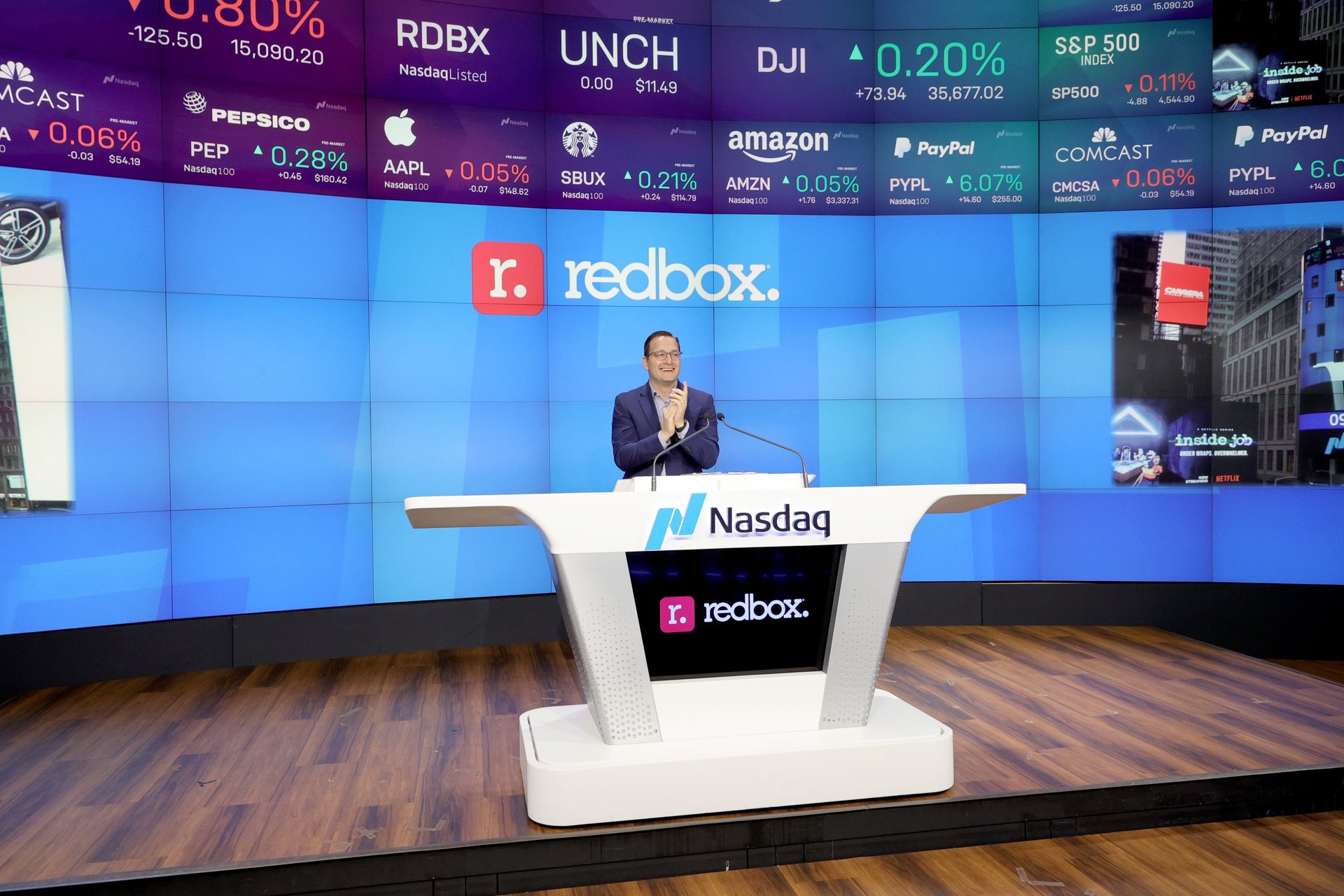Redbox’s wild meme stock rally finally ends with its sale
Redbox pitted arbitrage sellers and meme traders against one another.

One of the strangest meme stocks of the retail-trading era has come to its utterly predictable, yet somehow still inexplicable, conclusion.
On Aug. 11, the DVD vending machine company Redbox was officially purchased by Chicken Soup for the Soul Entertainment in an all-stock deal. The deal closed just three months after it was announced on May 11.
In the time between May and August, Redbox’s stock traded erratically. Redbox sold itself to Chicken Soup, which owns other entertainment brands like Crackle, for the equivalent of $1.65 per share. Redbox shares were trading around $6 when the sale was announced, but rather than collapse, the stock went up, to as high as $18, as retail traders and arbitrage opportunists fought to manipulate the stock and make a buck off the sale.
Why did Redbox become a meme stock?
Redbox had many of the typical ingredients for a meme stock.
First, it was cheap, trading around $6 a share at the time of its sale. Second, it was a consumer-facing brand that evoked nostalgia similar to other meme stocks like GameStop, Blackberry, and Bed Bath & Beyond. Third, there was a lot of short-selling activity among investors who correctly saw that Redbox’s business was doomed.
The sale presented a bizarre kind of arbitrage opportunity because it was a stock-for-sock sale: Every share of Redbox would convert to 0.087 shares of Chicken Soup. As Bloomberg columnist Matt Levine explained in a recent newsletter, a trader could do the following:
1. Short 1 million shares of Redbox; collect $10.1 million.2. Buy 87,000 shares of Chicken Soup; pay $617,700.
3. Now you have $9.5 million.
4. Wait.
5. The merger happens, the 1 million Redbox shares you’re short turn into 87,000 Chicken Soup shares, you deliver your longs to close out your shorts, and you keep $9.5 million of risk-free profit.
But meme traders pounce on short-sellers like sharks sniffing for blood: As of July 29, about 53% of Redbox’s freely trading shares were being shorted, which means their holders were betting the stock would go down. While arbitrage traders were shorting the stock to cash out, meme traders stepped in trying to pump up the stock, squeeze out the shorts, and cash out before the stock price returned to earth.
